Recent Articles
Popular Makes
Body Types
10 Best Cars for a Growing Family
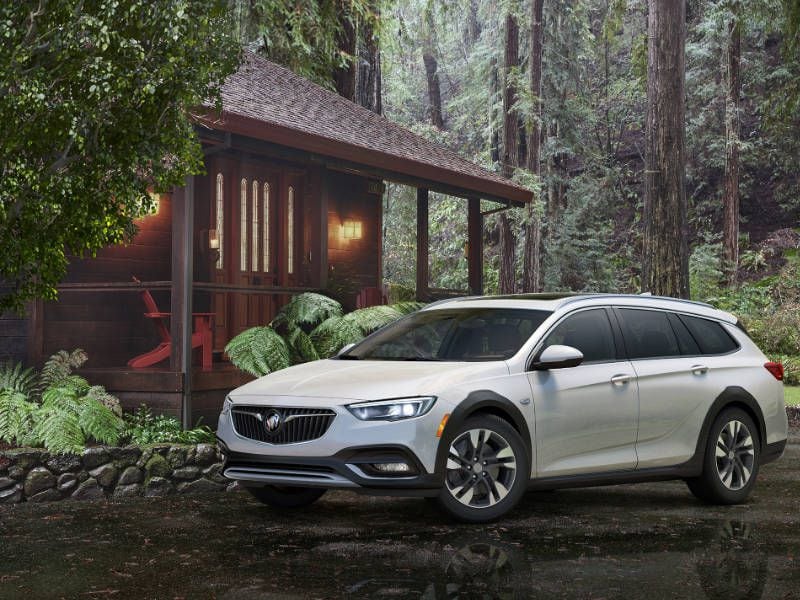
2018 Buick Regal TourX hero ・ Photo by Buick
It may not seem obvious at first, but the best cars for a growing family have to be particularly good at hauling. That is, they have to deliver high levels of safety when they’re being used to haul family members, and they have to have a fair amount of storage versatility for hauling groceries, backpacks, sports equipment, and typical family-style cargo. Next, since many families are working on a budget, the value is another important selling point especially because many modern families expect that budget to cover popular infotainment technologies. That said, the right way to support today’s diverse families is with a diverse gallery of vehicles, so following is a list of traditional and non-traditional choices alike.
2018 Jaguar XF Sportbrake
station wagons are certainly among the best cars for a growing family, and that makes the 2018 Jaguar XF Sportbrake an ideal choice for carting around young ones. Despite a name that honors British “shooting-brake” vehicles, which were designed for carrying hunters and their gear, the XF Sportbrake is indeed a modern-day wagon, complete with 31.7 cubic feet of cargo space behind its rear seat. Fold-down the back seat and this Big Cat has more overall room for cargo, 69.7 cubic feet, than a 2018 Ford Escape SUV. The XF Sportbrake also checks in with family-friendly technologies like a mobile Wi-Fi hotspot and a wide range of driver-assistance features. Also helpful for the driver is a standard 380-horsepower supercharged V6.
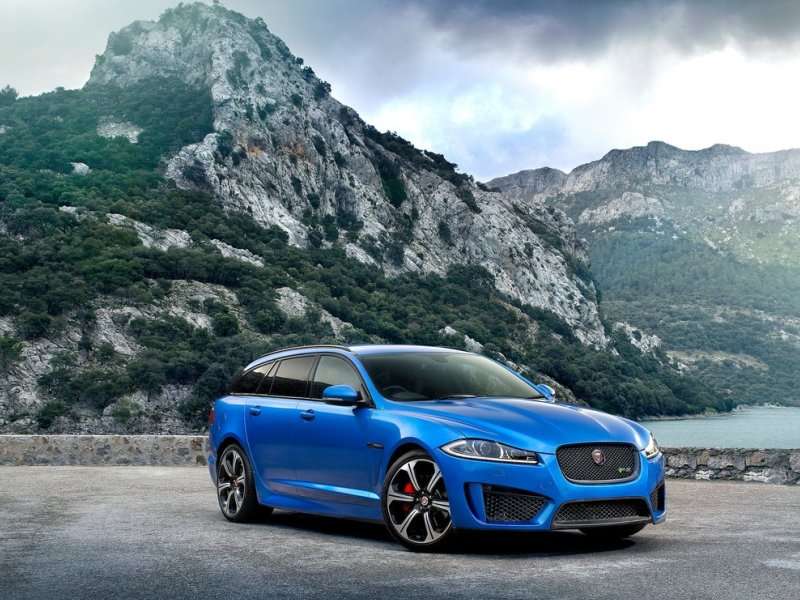
Photo by Jaguar
2017 Chevrolet Bolt
One of the best cars for a growing family focused on the environment is the 2017 Chevrolet Bolt. The Bowtie brand’s all-electric hatchback is EPA-certified with a 238-mile driving range on a single charge, and Chevy delivers a wealth of technologies for families on the go. For example, a mobile Wi-Fi hotspot, Android Auto/Apple CarPlay and a rearview camera are all standard, while options for extra family protection extend to forward collision alert, pedestrian detection, automatic forward braking, a blind-spot monitor, rear cross-traffic alert, and more. The subcompact Bolt also meets family-style cargo needs with its roomy rear cargo hold, and to fit in a family-style budget, a federal tax credit can bring net pricing down below $30,000.
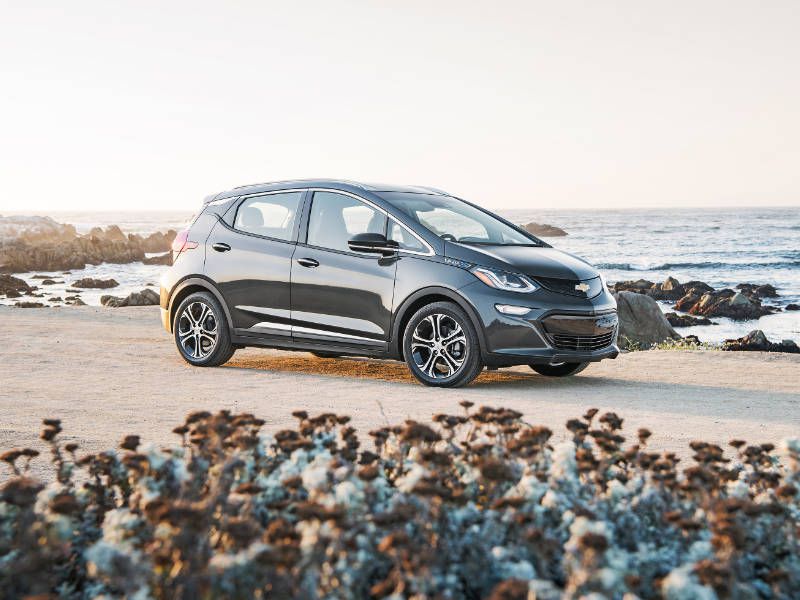
Photo by General Motors
2018 Subaru Impreza
With sedan and hatchback body styles, the 2018 Subaru Impreza has twice the appeal if you’re shopping for the best cars for a growing family. Both offer the confidence of standard all-wheel drive and enough available technology for Top Safety Pick+ status from the IIHS. Each one also provides top technologies for connected families. The hatchback, however, really ups the ante in terms of cargo space. There are 20.8 cubic feet of storage behind the second-row seats, and that can be expanded to 55.3 cubic feet by folding the rear seatbacks. No other mainstream hatchback matches that total. In fact, as compared to some rivals, like the 2018 Honda Civic hatch, the Impreza furnishes nearly 20 percent more overall cargo space.
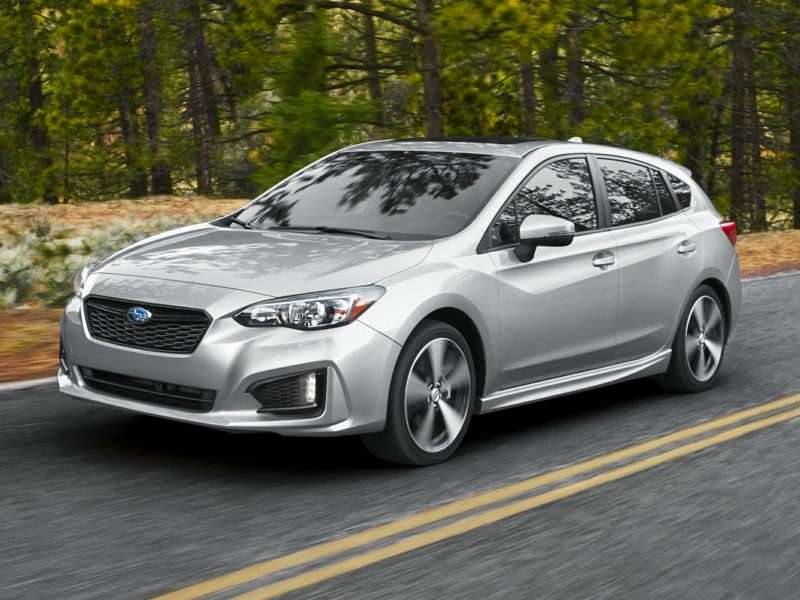
Photo by Subaru
2018 Dodge Charger
Leading the best cars for a growing family of muscle-car fans is the 2018 Dodge Charger. True, it has four doors instead of two, like a “real” muscle car, but there’s no shortage of muscle. The standard V6, for instance, serves up 292 horsepower, and three HEMI V8s are optional. The Charger Hellcat’s supercharged 6.2-liter units leads the way, of course, thanks to 707 horses, 650 lb.-ft. of torque, and the ability to sprint from 0-60 in less than 4 seconds. But remember, the Charger also is a modern-day full-size sedan, which means it can supply a full-size 40.1 inches of rear-seat legroom, a trunk capacity of 16.5 cubic feet, and many cutting-edge safety technologies.
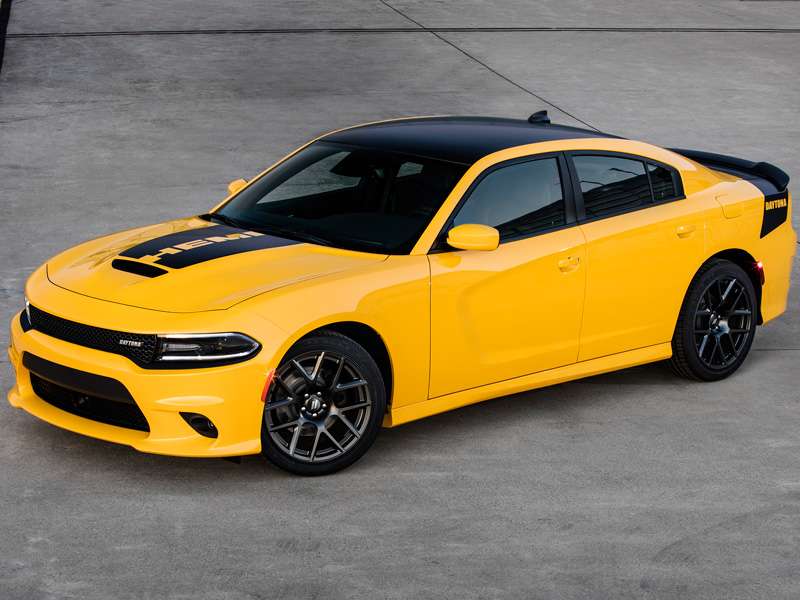
Photo by Dodge
2018 Volkswagen Golf SportWagen
Although compact hatchbacks are great for optimizing fuel efficiency, affordability and cargo space (all traits in high demand in the best cars for a growing family,) the 2018 Volkswagen Golf SportWagen stretches those benefits considerably. Thus, as a compact station wagon, it showcases an impressive 30.4 cubic feet of storage behind the rear seats and a generous 66.5 in total. That’s only 2.5 cubic feet less than a Ford Escape compact SUV. Furthermore, the Jetta SportWagen has a family-focused advantage that the Escape doesn’t because only the VW product is a Top Safety Pick of the IIHS. Looking for the latest Android Auto/Apple CarPlay smartphone integration? You’ll also find that in the SportWagen.
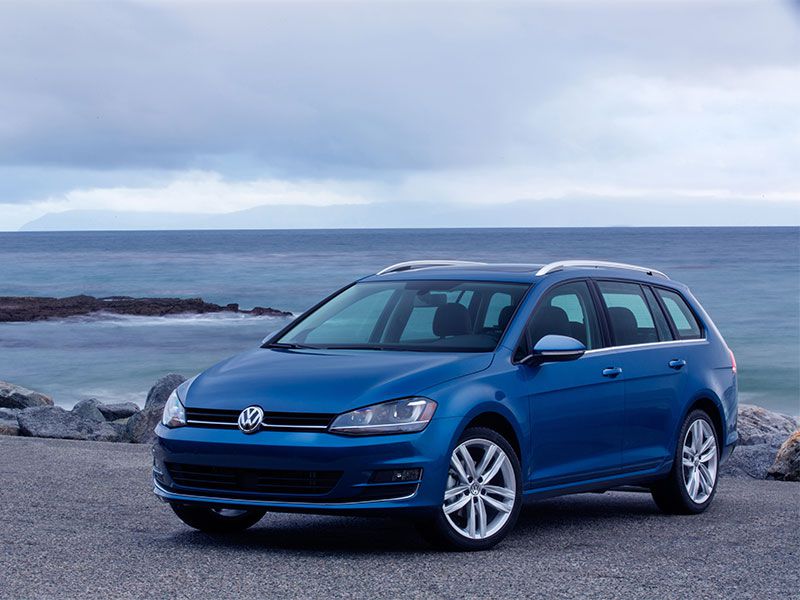
Photo by Volkswagen
2017 Ford C-MAX
As for the Blue Oval’s best cars for a growing family, the 2017 Ford C-MAX is a worthy candidate for consideration. Again, it’s a car that hits the trifecta for cost, cargo space, and connectivity tech, highlighted by an MSRP of $24,175, up to 52.6 cubic feet of storage, and Android Auto and Apple CarPlay. But the C-MAX stands out with two hybrid powertrains. The standard setup is good for an EPA of 42 mpg city/38 mpg highway/40 mpg combined. To attract EV fans, the C-MAX Energi takes things to the next level with a plug-in hybrid propulsion system where drivers enjoy a 20-mile all-electric driving range, plus 550 miles of range using traditional hybrid power.
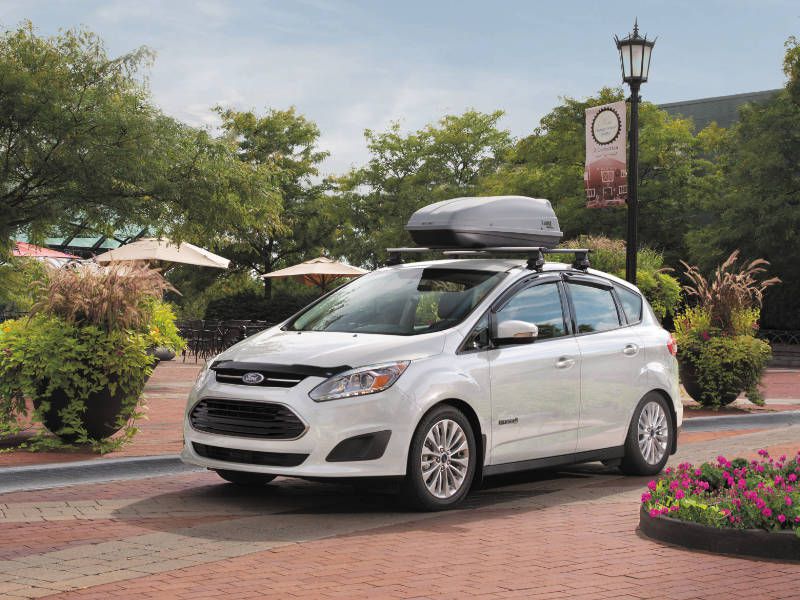
Photo by Ford
2018 Buick Regal TourX
Next on our list of the best cars for a growing family is a new member of the Buick family. It’s the 2018 Buick Regal TourX that blends key benefits of both crossovers and station wagons into one sporty and attractive package. Essentially a station-wagon variant of the brand-new Regal Sportback, the TourX also gains extra ride height and raises the bar for cargo space, bolstered by 32.7 cubic feet behind its second row and 73.5 with that row folded flat. Nor is the TourX lacking in the family technology department. Mobile Wi-Fi is standard, to help keep the kids connected, and Android Auto/Apple CarPlay lets drivers better leverage their compatible smartphones.
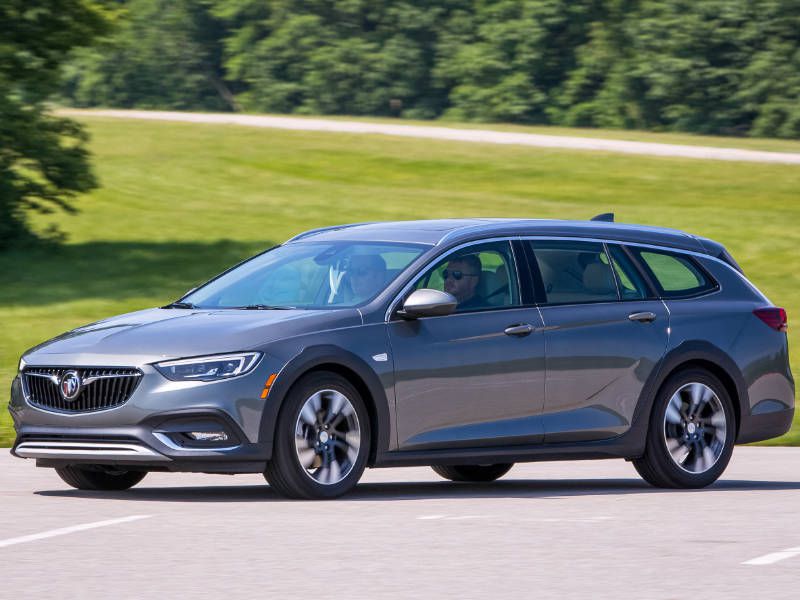
Photo by Buick
2018 Honda Fit
If you’re just starting to raise the kids, you may want to start with a 2018 Honda Fit. It’s not the biggest of the best cars for a growing family, yet it offers a very strong cost-to-cargo ratio. Honda’s subcompact hatch is priced from $16,190, and even with its nimble dimensions outside, there’s up to 52.7 cubic feet of storage on the inside. Moreover, Honda’s “Magic Seat” engineering enables owners to handle long or tall items, including cargo up to four feet in height. As for handling customer interest in technology and safety, the Fit earned a 5 Star Overall Safety Score from NHTSA and can be ordered with content such as forward collision warning, collision-mitigation braking, and adaptive cruise control.
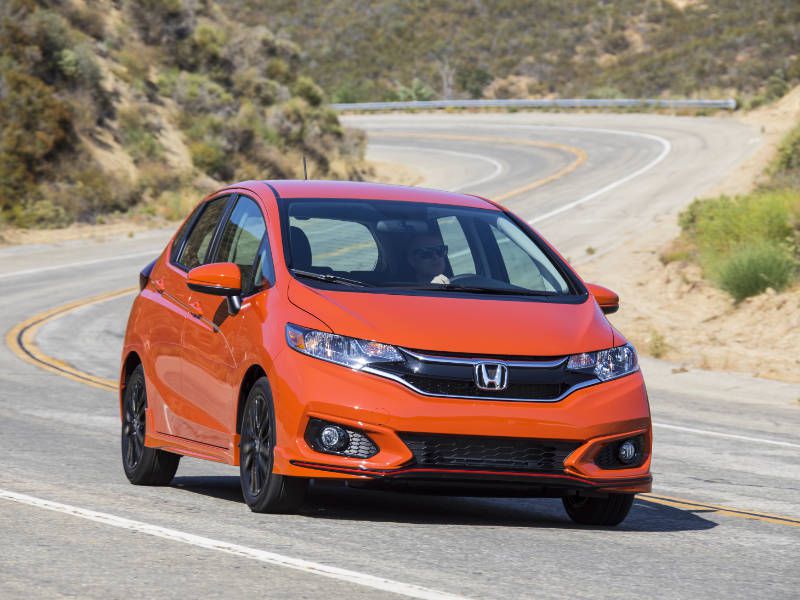
Photo by Honda
2018 Kia Optima
Midsize sedans are well known as some of the best cars for a growing family, with the 2018 Kia Optima being case in point. It’s as stylish as always, but now, for 2018, it protects family members with four standard driver-assistance technologies including a rearview camera, a blind-spot monitor, rear cross-traffic alert and rear parking sensors. Meanwhile, the Optima’s list of available safety content can add automatic emergency braking, forward collision warning, lane-departure warning, adaptive cruise control, and adaptive headlights. A result of all those features is a Top Safety Pick+ Rating from the IIHS and a 5-Star Overall Safety Score from NHTSA. The Optima can optimize cargo handling as well, backed by a handsfree trunk with more cargo space than in a 2018 Toyota Camry.
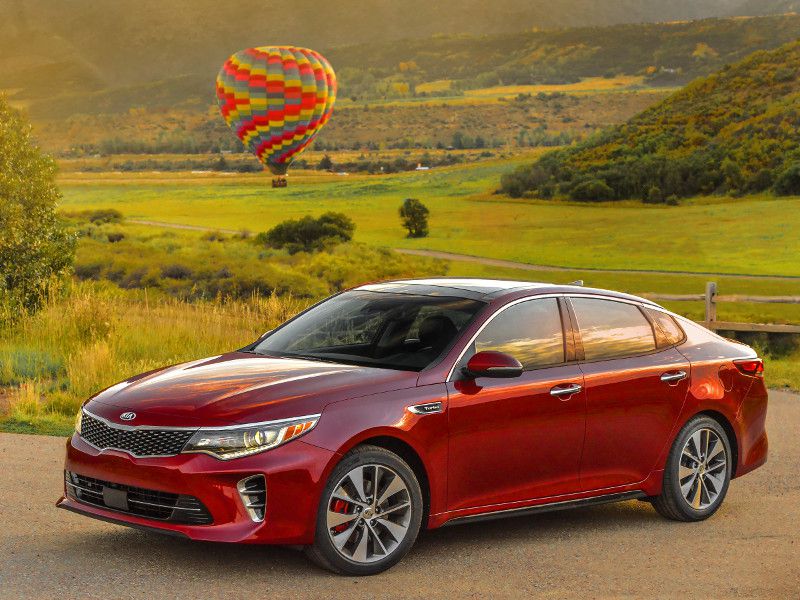
Photo by Kia
2018 Hyundai Ioniq
When it comes to the best cars for a growing family of conservationists, the 2018 Hyundai Ioniq offers three electrified powertrains. The standard setup is more fuel-efficient than a Toyota Prius in all phases of EPA testing and can post EPA ratings of 55 mpg city/54 mpg highway/55 mpg combined. The Ioniq Electric is the EV alternative, with an all-electric driving range of 124 miles, and the new-for-2018 Ioniq Plug-in hybrid blends a 24-mile EV driving range with the ability to travel an extra 625 miles with gas-powered assistance. Even better, all models are available with hatchback-style cargo versatility and safety equipment such as automatic emergency braking, pedestrian detection, a rearview camera, and more.
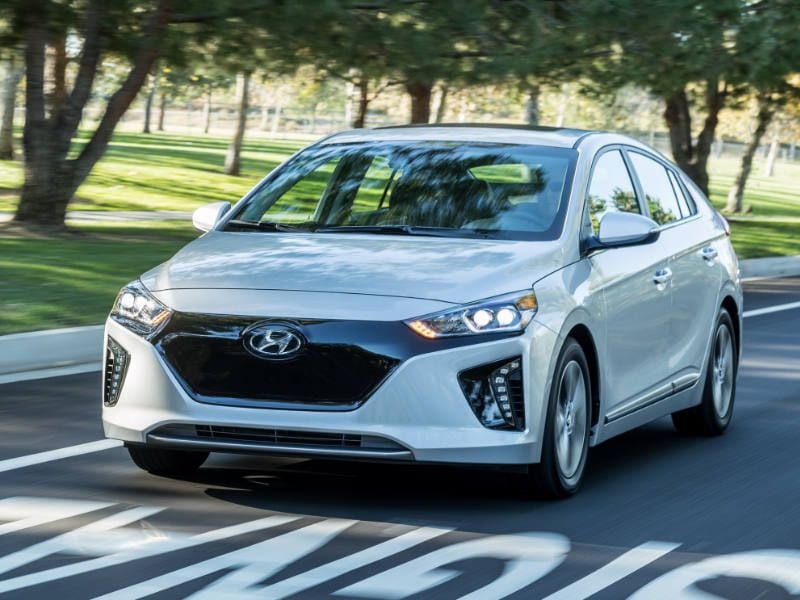
Photo by Hyundai